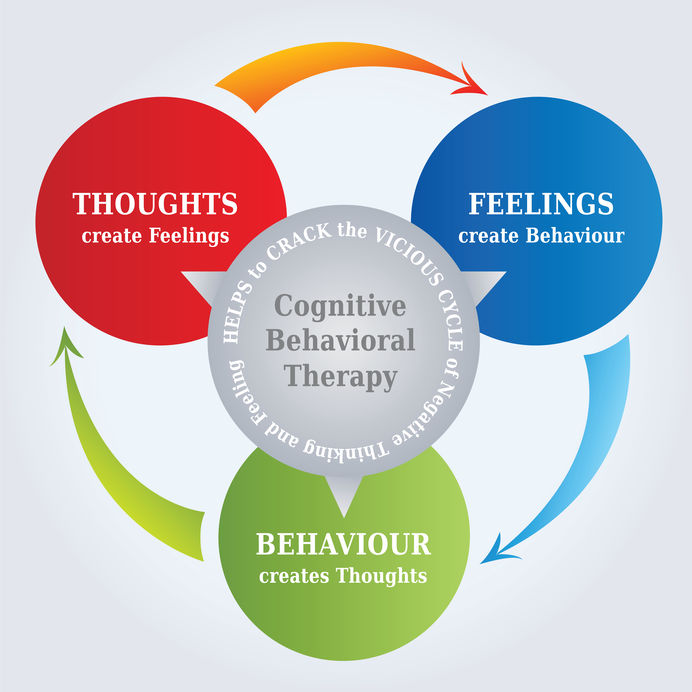
Cognitive Behavioral Therapy (CBT) is a short-term, problem-focused behavioral treatment that helps people understand the connection between their beliefs, thoughts, feelings, and patterns of behavior.
CBT is grounded in the belief that it is a person’s perception of events – rather than the events themselves – that determine how he or she will feel and act in response. This does not mean that difficult or painful things you’ve been through were not truly difficult and painful. It does mean that you have a choice about how you will respond to the difficulties or adversity that you face.
CBT can help with:
- Depression
- Anxiety
- Panic attacks
- Phobias
- Obsessive compulsive disorders (OCD)
- Posttraumatic stress disorder (PTSD)
- Substance dependency
- Persistent pain
- Disordered eating
- Sexual issues
- Anger management issues
People with clearly defined behavioral and emotional concerns often benefit from CBT.
With CBT, you’ll be able to adjust the thoughts that directly influence your emotions and behavior. This adjustment process is referred to as cognitive reconstructing, which happens through different CBT techniques.
Some CBT techniques are:
- Journalling
- Re-examining beliefs
- Relaxation
- Meditation
- Mindfulness
- Behavioral experiments
- Social, physical and thinking exercises
Cognitive behavioral therapy is much more than sitting and talking about whatever comes to mind during a session. CBT sessions are structured to ensure that the therapist and the person in treatment are focused on the different goals of each session, which in turn ensures that each and every session is productive.
If you or someone you know would benefit from cognitive behavioral therapy, please contact us today. We would be happy to speak with you about how we may be able to help.
